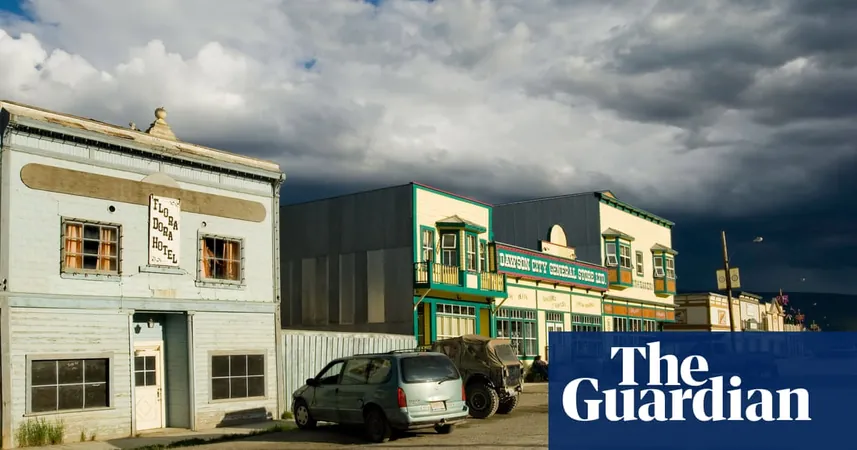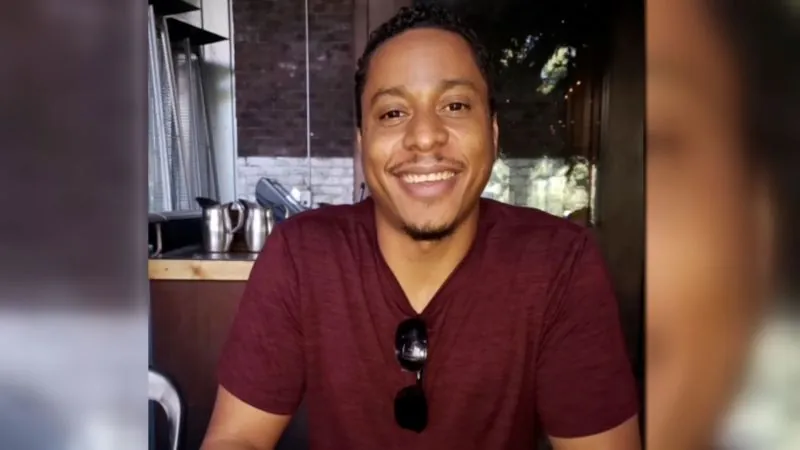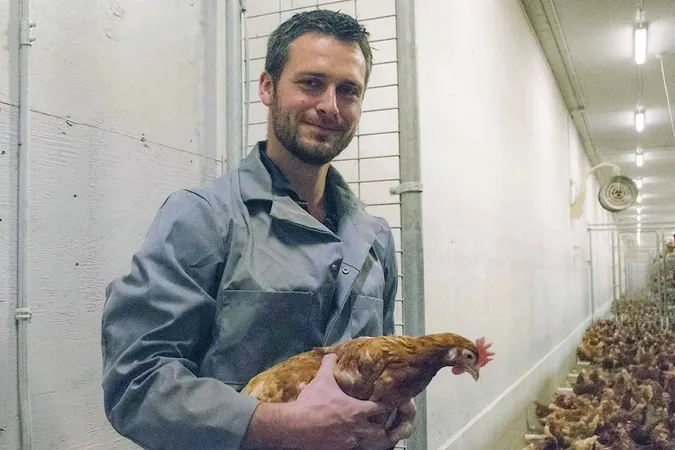
Shocking Standoff in Yukon: Town Council Refuses Oath to King Charles III!
2024-11-20
Author: Noah
Overview of the Situation
In a remarkable turn of events, the council of Dawson City in Canada’s Yukon territory finds itself at an impasse after its members collectively refused to swear a mandatory oath of allegiance to King Charles III. This unforeseen standoff is rooted in the ongoing tensions surrounding the crown’s historical treatment of Indigenous peoples in the region, effectively putting the elected officials' positions in jeopardy.
The Implications of the Oath
Since mid-October, when residents voted to shake up local governance, replacing the mayor and council amidst claims of scandal, the incoming council has been unable to fulfill its duties due to this procedural limbo. The newly elected mayor, Stephen Johnson, remarked on the absurdity of the situation: “We’re sort of, kind of council, and I’m sort of, kind of the mayor. It’s a bit of a sticky situation.”
Legal Obligations and Indigenous Perspectives
Under the Yukon Municipal Act, local government officials are legally mandated to take an oath of allegiance, which has now become a flashpoint of controversy. Shortly before assuming office, councillor-elect Darwyn Lynn, a member of the Tr’ondek Hwech’in First Nation, expressed his disquiet about pledging loyalty to the crown, spotlighting the historical injustices faced by Indigenous communities.
A Collective Decision Against the Oath
While the council members did take the oath of office on November 5, they have collectively opted to abstain from swearing their allegiance to King Charles and his heirs. Johnson emphasized that this decision was made out of respect for Lynn and a shared acknowledgment of the region’s colonial past, during which the Indigenous peoples’ ways of life were severely disrupted.
Historical Context of Dawson City
Dawson City, often dubbed the “Paris of the North,” has a tumultuous history rooted in the Klondike Gold Rush, which saw an influx of 17,000 gold-seekers at the end of the 1800s. This surge led to the displacement of the Tr’ondek Hwech’in, whose traditional hunting and fishing camps were irrevocably altered, and are notably located at the site of the former Tr’ochëk, an area integral to their culture and sustenance. Today, fewer than 2,400 residents inhabit Dawson City, a shadow of its former bustling glory during the gold rush.
A Statement of Solidarity
Johnson stated, “This is done with no disrespect to His Majesty King Charles. We’re not trying to poke at Canada or make a grand statement against the crown. It’s a gesture of solidarity rooted in our local ethos.”
Growing Discourse on the Relevance of the Oath
While opposition to the oath isn’t entirely unprecedented, it highlights a growing discourse regarding the relevance of such allegiances in modern Canadian governance. Notably, in 2022, Quebec lawmakers abolished the requirement for officials to pledge allegiance to the crown, describing it as an outdated custom.
Indigenous Perspectives on Treaties
Some Indigenous leaders continue to view treaties with the crown as vital agreements for peaceful coexistence. In light of the ongoing standoff in Dawson City, the territorial government is exploring alternative arrangements to honor the oath while respecting the sentiments of the newly elected council.
Upcoming Deadline and Potential Consequences
As the deadline approaches—December 10—if no resolution is found, a byelection will be required, and council members will lose their positions, marking a turning point in how governance is navigated in conjunction with historical grievances. The tension in Dawson City raises critical questions about the legacy of colonialism and the future of all involved, making this ongoing saga one to watch closely.









 Brasil (PT)
Brasil (PT)
 Canada (EN)
Canada (EN)
 Chile (ES)
Chile (ES)
 España (ES)
España (ES)
 France (FR)
France (FR)
 Hong Kong (EN)
Hong Kong (EN)
 Italia (IT)
Italia (IT)
 日本 (JA)
日本 (JA)
 Magyarország (HU)
Magyarország (HU)
 Norge (NO)
Norge (NO)
 Polska (PL)
Polska (PL)
 Schweiz (DE)
Schweiz (DE)
 Singapore (EN)
Singapore (EN)
 Sverige (SV)
Sverige (SV)
 Suomi (FI)
Suomi (FI)
 Türkiye (TR)
Türkiye (TR)